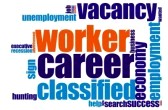Does Your Resume Pass
This 5-Point Checklist?
Does Your Resume Pass This 5-Point Checklist
Clear Objective-Opening Statement-Measurable Results-One Job Title-One Resume and "Above the Fold" As the economy has worsened and millions of job seekers are chasing after fewer and fewer jobs, what you put on your resume has become more important than ever. Before you send your resume anywhere, run it through this quick five-point checklist to determine if it needs a tune-up or a complete overhaul - by Joe Turner
Does Your Resume Pass
This 5-Point Checklist?

1. Clear Objective
There has been a lot of debate lately among the resume-writing "chattering classes" about whether today's resumes even need an objective. After 15 years of reading resumes for my clients, my answer is definitely, "Yes." However, I should clarify. By "objective," I'm not referring to the fluff that most job seekers concoct. The objective should be your targeted job title and nothing more. This focuses the resume and necessitates that you use the rest of the resume to support why you're the best candidate to fill this particular job title. It also leaves no doubt in your reader's mind about who you are.
2. Opening Statement
Does your resume open with a long paragraph titled, "Summary of Qualifications"? Problem: Of the thousands that I've read over the years, most are nothing more than fiction. Long laundry lists of skills and assorted keywords. Two of the biggest offending phrases are "results-driven" and that ever popular "proven track record." If your resume looks like this, you might want to rethink your approach. Don't bore your reader by emphasizing keywords and hackneyed cliches. Employers want to know how you can solve their problem right now. Don't annoy them by failing to answer this urgent question. Instead, include a simple, concise opening statement. This one sentence is usually called a Unique Selling Proposition. It should define who you are, your single biggest strength and end with a benefit that you offer. Ideally it should be something measurable, since everything boils down to dollars. This strips away the fluff and quickly answers that critical question in their mind. Do this, and you make it easy for them to call you.
3. Measurable Results
OK, now you have a great opening statement. For Act Two, you must back that up with added proof. Don't rely on tired cliches. Tantalize them with a bulleted list of specific achievements. By achievements, I mean an end result that reaped some benefit for either your employer or the client you've worked for. This may require that you think outside your box or cubicle. Regardless of your role, you have a bottom-line impact on your employer. Your job is to communicate your true value clearly and specifically to your next employer. It may take a bit of effort to develop these bullets. And that's all they should be. No more than a one-sentence brief description of the benefit or result and how you accomplished it. If you can put together a concise list of five to seven good achievements that are Return-on-Investment (ROI)-oriented, you'll score a lot quicker than relying on those unexciting cliches.
4. One Job Title, One Resume
Resume readers are very focused and they're looking for specific items. They have very short attention spans and can be easily distracted. When they get distracted, they start getting confused, and when that happens, they screen you out and reach for the next resume. So, if you are looking for a position as a project manager, tell them why you're a great project manager. That's all they want to know. Don't tell them about how you used to work as a carpenter or how you managed and ran your own consulting business. They don't want or need to know about your other unrelated careers or positions. Even if you were great at them. Use one resume to sell one job title. If the resume doesn't clearly explain why you're the best project manager in your city, then either drop the information or minimize it because it doesn't belong there. Stick with one career on one resume and you'll have less chance of getting screened out.
5. "Above the Fold"
Place all of your most important selling information at the very top half of page one. Most resume readers spend about 20 seconds of actual eyeball time before they decide to move to the next resume. They are not going to waste their time looking through your resume to find critical information, such as how you "increased revenues $350K" or "decreased labor costs by 12%." This information should be polished like gemstones and presented on a silver platter at the very top of the first page. Do this, and they'll be spending a lot longer than 20 seconds on your resume.
Back from Does Your Resume Pass This 5-Point Checklist to Career Articles
Back To For Your Dream Career Home


